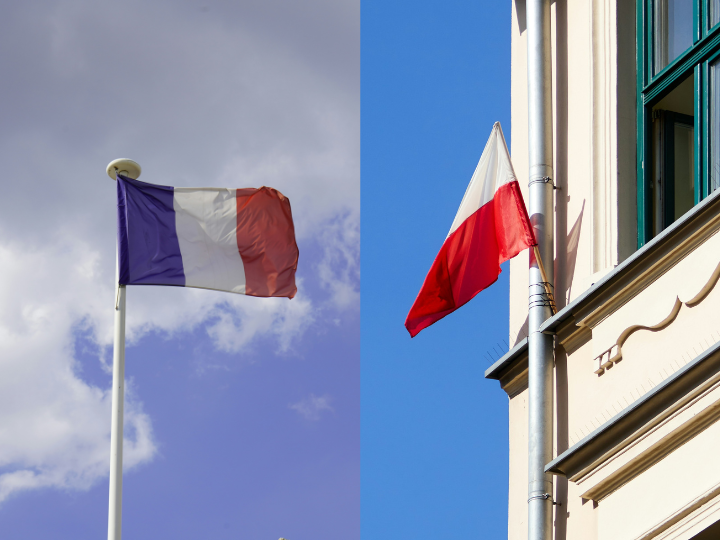by Theo Bourgery-Gonse
French President Emmanuel Macron is expected in Warsaw on Thursday (12 December) to debrief on conversations with US President-elect Donald Trump and Ukrainian President Volodymyr Zelenskyy over the weekend, Polish Prime Minister Donald Tusk announced.
The visit comes as a set of European leaders, including France, Poland, Germany and Italy, as well as the UK, look to act together in the face of a second Trump presidency and ensure unwavering support for Ukraine.
Discussion topics should include European support for Ukraine "in a new transatlantic context", and the oncoming Polish Presidency of the Council of the EU in the first half of 2025, the Elysee told Euractiv in a written comment.
Macron, who will be meeting Tusk and Polish President Andrzej Duda, is also expected to share insights on the diplomatic exchange he had with Trump and Zelenskyy on the sidelines of the Notre Dame reopening ceremony on Saturday (7 December).
Trump has always been a fierce NATO critic and claimed to be able to end Russia’s invasion of Ukraine “in 24 hours” without elaborating on his strategy. The president-elect’s recently-nominated Ukraine-Russia envoy, Keith Kellogg, who was not in Paris, vowed to enter “tough negotiations” with both parties to agree a ceasefire.
Kiyv-Moscow peace negotiations could start as early as this winter, Tusk said on Tuesday (10 December).
The French president and the Polish prime minister agreed to the trip at the European Political Community summit in Budapest in early November, Gazeta Wyborcza, the first to break the news, reported. Macron’s last official visit to Poland was in February 2020.
Poland is becoming an ever-more powerful European member state, as Weimar Triangle allies France and Germany are embroiled in an unprecedented political crisis and a tense run-in to federal elections, respectively.
Poland’s defence spending is over 4% of GDP, making it an audible interlocutor to the Trump administration – and both men know each other from when Tusk was president of the European Council, and Trump held office for a first term.
Paris also has its eyes set on Warsaw as a key ally in its fight against a EU-Mercosur trade deal, as European Commission President Ursula von der Leyen announced last week a technical deal had been struck. Poland, along with France, said it would not vote to approve the deal as is.
The trip risks delaying the nomination of a new French prime minister after the government collapsed over the confidence vote.
*first published in: Euractiv.com




 By: N. Peter Kramer
By: N. Peter Kramer

